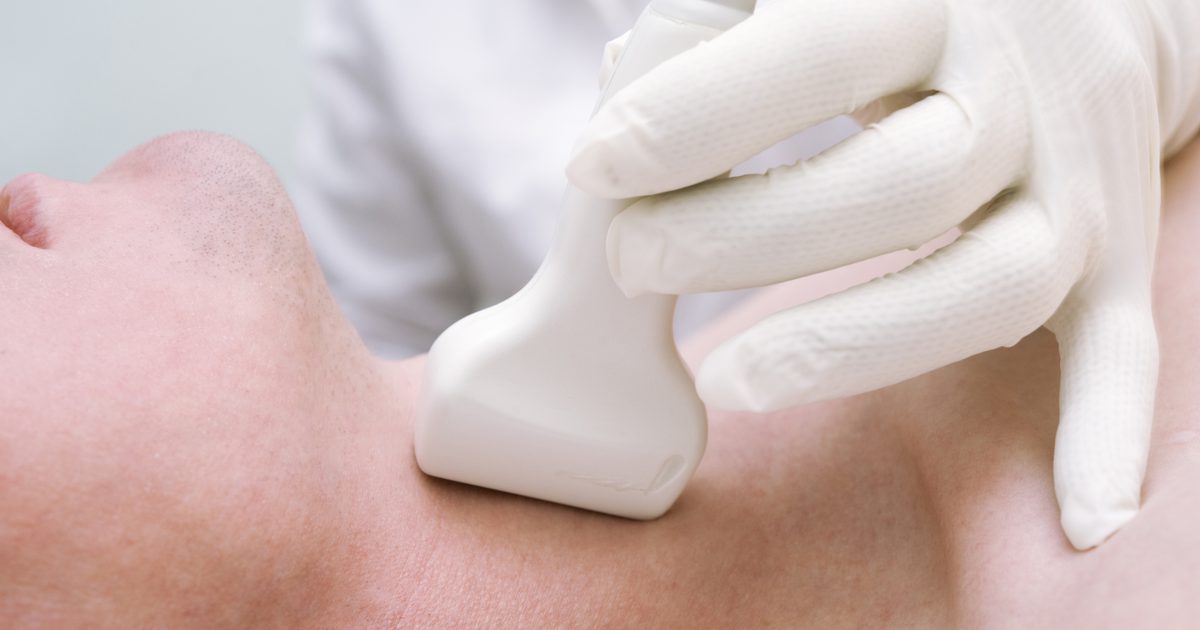Symptoms Of A Selenium Deficiency
Selenium is considered an essential dietary mineral that helps protect the body from oxidative stress. Plant-based foods are typically the major source of this mineral in the diet, and the exact selenium concentration in a given food is determined by the soil in which it is grown. Although rare in the United States, selenium deficiency is common in China, where the soil is lower in selenium. Scientists estimate one billion individuals worldwide are currently living with a selenium deficiency. Individuals who have Crohn's disease are at an elevated risk of this particular issue, and individuals who are undergoing dialysis are also more likely to develop it. To prevent a selenium deficiency, doctors recommend individuals consume fifty-five micrograms of selenium each day. Ideally, selenium should be consumed through food instead of supplements. Foods rich in selenium include Brazil nuts, whole-wheat bread, beans, rice, and some types of tuna.
Selenium deficiency can be difficult to diagnose, and doctors may use a blood test that measures levels of an enzyme known as glutathione peroxidase. This enzyme needs selenium to function properly, and low enzyme levels may suggest low selenium. In evaluating patients for this nutritional deficiency, doctors will check for the symptoms outlined below.
Weak Immune System

Patients with a selenium deficiency will often present with a weak immune system. When the immune system is weakened, this can result in a greater risk of infection. For example, patients with compromised immune systems may get frequent colds or other respiratory illnesses, and they are also more at risk of pneumonia. They may also exhibit constant fatigue, and may have slow to heal wounds or swollen lymph nodes. In particular, patients who have cancer or thyroid conditions, including Grave's disease, are already living with weakened immune systems due to these conditions, and they should be especially vigilant about getting adequate selenium in their diet. To check for the possibility of a weakened immune system, doctors can perform a series of blood tests, and they will conduct a physical examination to look for signs of infection.
Continue reading to learn more about the warning signs of a selenium deficiency now.
Muscle Weakness

Patients who have a selenium deficiency may notice weakness in the muscles, and the muscles may become increasingly weak if the deficiency is not corrected quickly. A feeling of weakness in the muscles can cause problems with standing, sitting, and walking, and patients may feel they need to stay in bed for long periods. Depending on the severity of the muscle weakness, some patients may struggle to walk without support, and they may also have problems with bathing, getting dressed, cooking, and writing. To help increase muscle strength, patients may wish to try gentle exercises such as swimming and yoga. However, anyone who notices muscle weakness should visit a doctor to receive a proper evaluation and diagnosis. The clinician can check the patient's range of motion and strength in the major muscle groups and recommend the most appropriate treatment. Some patients may also wish to consider a course of physical therapy to improve muscle strength, but this should only be done if recommended by a doctor.
Uncover details on more selenium deficiency symptoms now.
Hair Loss

Individuals with a selenium deficiency frequently notice they are losing small amounts of hair. For example, a patient may notice more hair than usual is coming out when their hair is brushed or styled, and the hair may also be thinner than normal. Rarely, some patients may notice a complete loss of hair in certain parts of the scalp. Since hair loss can be a sign of several medical conditions, patients should speak with a doctor about any persistent or unusual changes they notice in their hair. To prevent further damage to the hair, patients experiencing hair loss may wish to modify their washing and styling routine. For example, it may be helpful to brush the hair less often and to use a gentle brush. The use of curling irons and hair straighteners may stress the hair, and patients may wish to limit their use of these. Styling products such as waxes and gels may make hair more prone to breakage, and patients could consider switching to alternative gentle products or eliminating some products from their hair care routine. Once the selenium deficiency is corrected, many patients find their hair growth returns to normal.
Discover more symptoms of a selenium deficiency now.
Fatigue

The fatigue associated with a selenium deficiency can range in severity. Patients who are only mildly deficient may simply notice they feel more tired than usual after a long day, and this pattern may persist for several weeks. As the selenium deficiency becomes more severe, patients may start to feel they are never truly well-rested no matter how much sleep they are able to get. Patients may struggle with getting out of bed in the morning, and some may have to be absent from work or school due to the severity of their symptoms. Patients struggling with these issues should visit their primary care doctor first, and they may be referred to a sleep specialist for further testing. The sleep specialist can give advice about ways to reduce symptoms and increase sleep quality. If necessary, medications can be prescribed to reduce exhaustion and help make sleep easier.
Understand more selenium deficiency symptoms now.
Confusion Or Mental Fog

Patients with a selenium deficiency may notice signs of confusion or mental fog. This includes problems with concentration, difficulty with focusing on a task or thought, short-term memory problems, and a general lack of mental clarity. Individuals experiencing these symptoms may have trouble making decisions, and tasks at work or school may take longer than normal and seem more difficult. For patients low in selenium, the sleep problems and frequent infections they may experience will often make mental fog worse. Since mental fog and confusion may stem from a number of medical conditions, doctors will conduct a thorough physical examination to rule out serious conditions, including a mental status exam and questions about the patient's medical history and current symptoms. Mental fog and confusion typically resolve with proper treatment to restore selenium levels to within normal limits.
Continue reading to reveal more warning signs of a selenium deficiency now.
Hypothyroidism

Hypothyroidism, which can be indicative of a selenium deficiency in an affected individual, is a condition characterized by an inability of the thyroid gland to produce an adequate amount of thyroid hormone. Thyroid hormone is responsible for the regulation of carbohydrate, fat, and protein metabolism. It also manages the rate at which an individual's body burns calories. Thyroid hormone is also a critical factor in the process of cell differentiation and cell development in the body. Thyroid hormone also has the ability to lower or raise body temperature, and it can slow down or speed up the heartbeat. The thyroid gland in the endocrine system is the organ that contains the most abundant selenium content out of all other organs in the body. Selenium is a critical component required for the production of thyroid hormones. Even though the primary ingredient in thyroid hormone is a compound called iodine, selenium is required for the body to synthesize iodine into thyroid hormone.
Learn more about the major symptoms of a selenium deficiency now.
Goiter

When an individual's thyroid gland, which is located at the base of the throat, becomes abnormally enlarged, they have what is called a goiter. The presence of goiter can be a symptom of an individual affected by a selenium deficiency. A goiter happens most commonly when the patient is deficient in iodine. Both iodine and selenium are required for the thyroid gland to produce adequate amounts of thyroid hormones. Most individuals get their supply of iodine and selenium from regularly fortified soil and food like iodized salt. In geographic regions where there is a deficiency in both iodine and selenium due to an absence of soil and food fortification, individuals experience hypothyroidism and nodule formation in the thyroid gland that causes it to become enlarged. If an individual has a goiter due to insufficient amounts of iodine, they are likely also to have low levels of selenium, since both minerals are fortified into food together.
Read more about selenium deficiency symptoms now.
Unexplained Weight Gain

Unexplained weight gain can be indicative of an individual affected by selenium deficiency. This symptom stems directly from the effect an inadequate supply of selenium has on the function of the thyroid gland. Without enough selenium, the thyroid gland cannot synthesize iodothyronine deiodinase. Iodothyronine deiodinase is the component that converts T4 into T3, which are both hormones required for the proper regulation of an individual's metabolism, heart rate, and temperature.
When there is not an adequate supply of selenium in order to yield T3 and T4, the individual experiences symptoms associated with a slowed metabolism of energy producing factors. Without enough of the thyroid hormones, the body's metabolism slows and causes a disruption in the individual's energy balance. Energy balance is the ratio of the number of calories an individual consumes to the number of calories they are burning. When an individual consumes a higher number of calories than the number they are burning, they have a positive energy balance. A positive energy balance causes the body to store excess calories and experience weight gain.
Unveil additional indicators of a selenium deficiency now.
Shortness Of Breath

An individual's selenium deficiency may manifest as frequent shortness of breath or dyspnea as a symptom. The shortage of selenium inhibits the normal process that synthesizes a compound required to produce both T3 and T4 hormones. Without enough of both of these thyroid hormones, the lungs have a reduced hypercapnic ventilatory drive and hypoxic ventilatory drive. In addition, insufficient levels of thyroid hormone in the body can cause the patient to have myopathy or dysfunction of the muscle fibers. When muscle fibers experience dysfunction, the individual is unable to produce a full muscle movement with the exertion of their best effort. When this malfunction of myopathy occurs in the lungs, it results in a weakening of the lung muscles. These muscles control the inflation of the lungs upon inhalation, and deflation upon exhalation, and because these muscles are not working as they should be in selenium deficiency patients, they may feel like they are unable to inhale enough air. This sensation is also described as shortness of breath.
Learn more about the major warning signs of a selenium deficiency now.
Slow Wound Healing

Individuals who are deficient in selenium may exhibit slow wound healing as a symptomatic manifestation of their condition. Low levels of selenium cause a reduced production of thyroid hormone by the thyroid gland. Thyroid hormone helps with expediting the process of skin barrier formation by stimulating the activity of certain enzymes. These enzymes are vital factors in the epidermal cholesterol sulfate cycle that regulates skin cell differentiation, desquamation, and its function of serving as a barrier. When an individual is wounded, the factors within the blood develop a blood clot to stop any bleeding. Once the blood clot is no longer needed, it falls off or the body absorbs it. The cholesterol sulfate cycle takes over along with other processes to form a new layer of skin in the place of the damaged or missing tissues. When there are not enough thyroid hormones in the body due to a selenium deficiency, there is a delay in the functioning of the sulfate cycle and other healing processes because the enzymes are not being appropriately triggered from insufficiency of thyroid hormone.